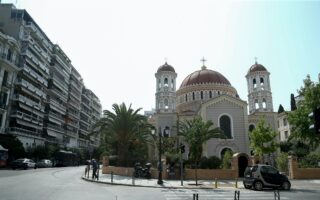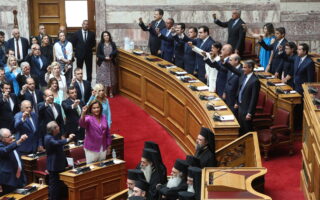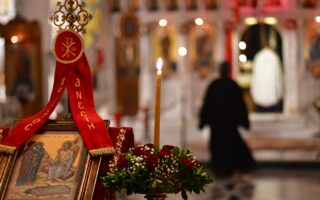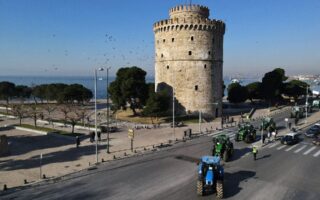A ‘safety net’ for Mount Athos
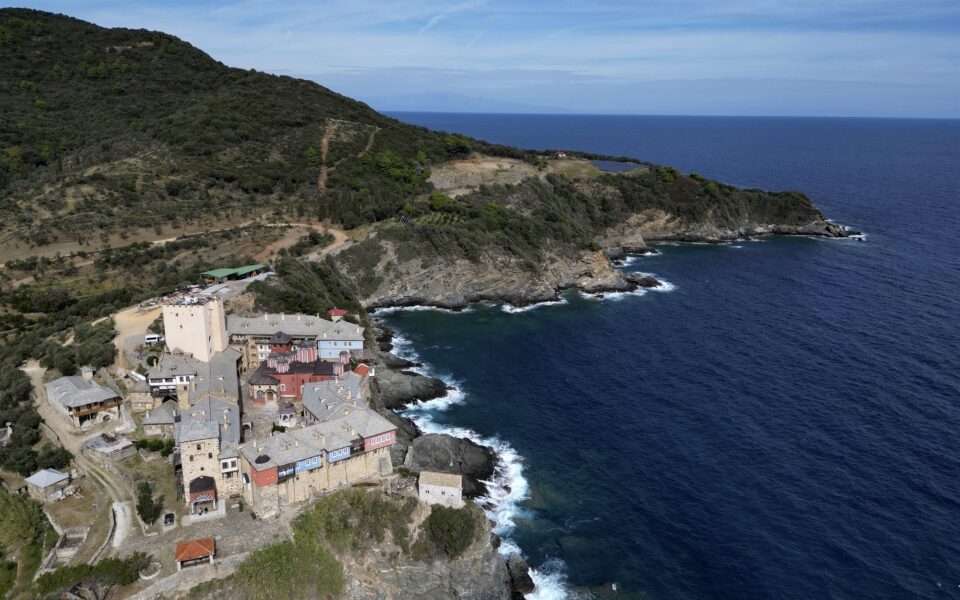
With the storm over the planned legislation for same-sex marriage having subsided – at least on the surface – the tranquil monastic community of Mount Athos welcomed its new civil administrator at the start of this week. All the proper honors were observed with utmost formality as Anastasios Mitsialis officially took office on his inaugural visit to Karyes.
According to the charter governing the operation of the self-governed community, the civil administrator is responsible for areas like law and order and healthcare, while spiritual and ecclesiastical matters come under the purview of the Holy Community (a body of representatives from the monasteries), its executive arm, the Epistasia, and the individual monasteries.
With very few exceptions, relations between the community and the civil administrator have always been harmonious, and especially so under Mitsialis’ predecessor, Athanasios Martinos, who was particularly well-respected.
However, the appointment of Mitsialis, a career diplomat who, what’s more, served in the higher echelons of the National Intelligence Service, is very telling of current circumstances indeed, as is the decision – dictated directly from the Citizen Protection Ministry – to upgrade the status of the Karyes police station into a police department.
The greatest danger to the Ecumenical Patriarchate lies in a rapidly growing – and externally stoked – fundamentalist movement among zealots in Athos’ monasteries, sketes and cells
The Greek state has good reason to want to strengthen the safety net around Mount Athos, as the community has increasingly drawn international attention, and not just of a spiritual nature, which it has always enjoyed in its long history. Between the issues with Ukraine, Russia’s penetration in Africa and Moscow’s blatant challenges to the authority of the Patriarchate in Istanbul, tensions right now are rife in the Orthodox Church – and Mount Athos is not immune from it.
In the meantime, there have been a growing number of reports in the international media hinting at suspicious “Russian activities,” money-laundering operations (investigations by the Greek authorities have not yielded any evidence of this) and shady “pilgrimages” by foreign dignitaries and by politicians investing in the community’s clout and seeking the community’s blessing (even when it doesn’t want to give it) so they can start their own political parties or fish for votes.
The greatest danger to the Ecumenical Patriarchate, however, lies in a rapidly growing – and externally stoked – fundamentalist movement among zealots in Athos’ monasteries, sketes and cells, which is on the verge of openly challenging the status of the Phanar as the spiritual leader of the world’s Orthodox Christians, while cozying up to Moscow.
Mount Athos was and still is the Ecumenical Patriarchate’s “Holy Grail” and it cannot, in short, afford to lose its support.
It was essential, therefore, for the Greek state – with the Phanar’s consent, of course – to appoint a civil administrator who will understand all the different factors at play in the complex existence of the holy community.
